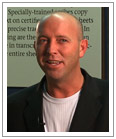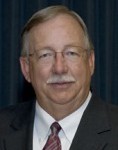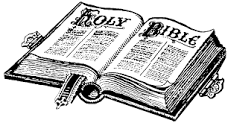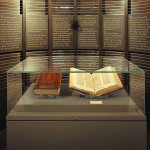How We Got The Bible Part 2
Let’s continue on with our timeline though, which skips ahead about 800 years due to little or no significant disagreements over the proper books of the Bible during that time.
1205 – Archbishop Steven Langton (a Catholic priest) divides the Bible into Chapters.
1229 – During the Albigensian heresy, the local council of Toulouse (not an ecumenical council) temporarily restricted access to the Bible by the laity in southern France. Ecumenical Councils have the ability to make decisions for the entire Church, but local councils do not. Since the Council of Toulouse was a local council, it had no authority over the Church outside of its region. Therefore, the Council’s actions had only a local impact, not throughout all of Christendom. Just to give you some perspective on the Council’s decision:
- The Albigensians taught that there are two gods, a good one and an evil one (dualism).
- They taught that physical matter, including the human body, was created by an evil god whereas our spiritual nature, our soul, was created by a good god.
- This is heresy and any Christian today, Catholic or not, would see that this is a very flawed teaching.
- The Bibles distributed by the Albigensians contained notes and commentary that misconstrued the Bible to support their heresy. Even today, we don’t like forgeries, dishonesty and manipulation.
- Without well-educated teachers to explain things to Christians, many people could have been misled.
- Hence the decision to keep these Bibles out of the hands of the laity until the heresy died off.
- The Council of Toulouse had no restrictions on the ownership or use of accurate and approved Bibles, just those crafted to mislead.
1381 – John Wycliffe, a renegade Catholic priest, rebels against the Catholic hierarchy.
- Contrary to popular legend, he was not condemned for publishing an English language Bible, but for many heresies.
- Additionally, he was never executed, he died of a stroke.
- An even more popular myth is that the Council of Constance ordered that his body be exhumed and burned for heresy*, but the actual records of the Council prove this to be merely legend.
- The Council of Constance did state: “It decrees and orders that his body and bones are to be exhumed, if they can be identified among the corpses of the faithful, and to be scattered far from a burial place of the church, in accordance with canonical and lawful sanctions.”
- *Nowhere in the council documents does it say that his bones were to be burned. The locals may have done that, but if they did, it wasn’t at the direction of the Church.
- The Council of Constance did state: “It decrees and orders that his body and bones are to be exhumed, if they can be identified among the corpses of the faithful, and to be scattered far from a burial place of the church, in accordance with canonical and lawful sanctions.”
- Wycliffe’s claim to fame was his English translation of the bible, but it was of very poor quality and contained many of his heretical beliefs, such as:
- Every person is God,
- Every creature is God,
- Some people are predestined for condemnation, and
- God is not omnipotent (i.e. “He cannot annihilate anything, nor increase or diminish the world, but he can create souls up to a certain number, and not beyond it.”).
- While some denominations may agree with some of Wycliffe’s heresy, no Christian would agree that God is anything less than omnipotent.
- I think that contemporary non-Catholic Christians, should recognize the fact that Wycliffe is not the hero the leaders of the Reformation have made him out to be.
1408 – The council of Oxford forbids unauthorized translations of the Bible into English in order to reduce confusion caused by Wycliffe’s errors. One of many examples of the Catholic Church’s efforts to protect truth and the accuracy and reliability of the Bible.
1415 – Jan Hus declared a heretic at the Council of Constance.
- Like Wycliffe, Hus was a renegade priest who rebelled against any and all authority (Or as Frank Sinatra would say, he wanted to do it his way).
- Unfortunately for Hus, his way included a lot of heresy and open and aggressive resistance to civil authorities as well.
- As with many rebels over the years, rejection of the Church results in strong rebuke, but rejection of the civil law usually results in a painful or demoralizing death.
- Hus taught that Jesus was not God Incarnate but just a human being “possessed” by the Holy Spirit from His baptism to the Crucifixion.
- All Christians still see this as flawed theology today. Most did then as well.
- After being declared a heretic, the Council turned him over to the government and requested that the penalty of death not be carried out on him.
- The government had its own penalties for heresy and they also had their own reasons for executing Hus, not the least of which was his open and defiant stance against the German Emperor at the time, Sigismund.
- Like Wycliffe before him, Hus is not the Christian hero reformers claimed. He was a political rebel, a man who spread significantly flawed false theology and a person who lacked the humility to take the advice of those who tried to save him from himself.
1442 – The Ecumenical Council of Florence reaffirms the 73 books of the Bible historically used by the Church up to that time.
1455 – The first Bible to be printed on the newly invented printing press was St. Jerome’s Latin Vulgate, containing all 73 books – The Gutenberg Bible.
1515 (approximately) – Thomas Linacre, a Catholic priest and scholar of the Greek language, was claimed to have written in his diary, “Either this (the original Greek) is not the Gospel… or we are not Christians”. In Dr. Paul Maier’s video series “How We Got The Bible”, Joel Lampe repeats this fiction as though it is truth. It is not.

Mr. Lampe has several facts wrong but most of his claims cite no source. I’ve selected a couple of his allegations for purposes of this blog because he did claim a source that actually does not appear to exist. Therefore, in order to point out the unreliable nature of his claims, I’ll look at two more specifically:
- Thomas Linacre appears to have had no such diary and certainly had no private writings in which Lampe’s account was written.
- There is an old story about Linacre in which it is claimed that he read Matthew for the first time in his 50’s and when he read it in it’s the Greek translation, he threw the book aside and exclaimed the words quoted above.
- However, most believe this is a fabrication, including James Joseph Walsh in his book Catholic Churchmen in Science, pg. 82 et. seq., as does John Nobel Johnson in his book The Life of Thomas Linacre, pg. 189 et. seq.
- Joel Lampe claims that Linacre’s exclamation actually came as he read Acts 2:38 and found that the word “penance” actually said “repentance” in the Greek.
- Actually, the Greek word used was Metanoia which was probably used for the Hebrew word “teshvvah” which means “turning” and encompassed things like fasting, wearing sack cloth and ashes and other mortifications.
- The Greek “metanoia” means to repent of sins and turn to God so it is both intellectual and related to actions.
- Lampe also claims that Foxe’s “Book of Martyrs” has an account of 7 people being burned at the stake for teaching their children the Lord’s Prayer in English.
- But a review of Foxe’s book shows no such account and there appears to be no other source that provides such account.
- Based on these two mischaracterizations by Lampe, one can reasonably conclude that he is merely repeating information that has no basis in fact. If he is doing this unknowingly, he is unreliable due to poor scholarship. If he is doing this knowingly, he is simply anti-Catholic and unreliable due to prejudice.
1516 – Erasmus Bible printed in English but due to being rushed, it contained hundreds of errors and omissions and Erasmus himself admitted it was a poor translation.
As you can see, we are now into the 1500’s and the Bible’s index still shows the very same 73 books that St. Athanasius listed nearly 1,200 years earlier. Even the people who rebelled against the authority of the Catholic Church continued to accept all 73 books of the Bible. But we are about to see a change in that acceptance for the first time in history:

1522 – Martin Luther publishes the New Testament in German.
1525 – William Tyndale produces an unauthorized (see the discussion of the Oxford Council in 1408 above) English translation of Wycliffe’s Bible. Prior to printing the unauthorized version of the Bible, Tyndale requested permission from his Bishop, but permission was denied. Was the denial due to some ban on an English-language Bible? No.
- Tyndale had been denied authorization for 3 reasons:
- There was no need as booksellers could not sell the Bibles they already had.
- The Reformation had thrown the rest of Europe into disarray but England had been spared from the turmoil and wanted to avoid the confusion of another printing of the Bible when the quality was uncertain.
- Tyndale was not regarded as a serious scholar, was known to hold unorthodox opinions on theology and was known to be temperamental with serious contempt for contempt for the Church’s authority.
- In the end, his contempt for the Church’s authority was evident in his choosing of certain words in his translation but even more so in his anti-Catholic prologues and commentary.
1534 – King Henry VIII starts the Church of England (Anglican Church) as the official Church of the British Empire.
- Thus began the English persecution of Catholics.
- Any Catholic, especially priests and bishops, who refused to reject the Catholic Church and sign an oath of allegiance to the King instead, were persecuted, imprisoned or executed.
1535 – The Coverdale Bible is printed in English (by Miles Coverdale) and included the Deuterocanonical books of the Catholic Bible (called the Apocrypha by Protestants).
- It should be noted that Coverdale, the first person to print the entire Bible in English, was never declared a heretic by the Catholic Church and was never arrested or otherwise threatened by the Church.
1536 – William Tyndale being pursued by King Henry VIII, but he was eventually apprehended and executed in Belgium by the secular government.
- Contrary to the story promoted by the reformers and some contemporary non-Catholic Christians, the Catholic Church did not arrest, imprison, judge or execute Tyndale.
1536 – Martin Luther produces the OT in German, excluding portions of Esther and Daniel and relegating 7 other books to an index, thereby indicating they were not inspired.
- These 7 books go by a few different names, such as the Septuagint, the Deuterocanonical books or the Apocrypha. (In this blog, I’ll just call them the Deutero books.) They include Tobit, Judith, 1st & 2nd Maccabees, Wisdom, Sirach and Baruch.
- Luther did not include the Deutero books because, relying on the Council of Jamnia (a Jewish Council, not a Catholic one), he believed the Jews in the late first century had rejected the authenticity of the books because they could not show that the originals of the books were written in Hebrew.
- Historians now believe that the Council of Jamnia may not have actually happened.
- The discovery of the Dead Sea Scrolls in 1947, contained fragments in Hebrew of Tobit and Sirach, that existed at least 200 years before Christ was born.
- These facts undermine Luther’s reliance on Jamnia for two reasons.
- The event may not have taken place; and,
- At least some of the Deutero books were clearly written in Hebrew.
- These facts undermine Luther’s reliance on Jamnia for two reasons.
- Many scripture scholars believe and accept that the other Deuterocanonical books were originally written in Hebrew.
- The first person to “tinker” with the Bible was Martin Luther. Some say he threw books out, or that he removed books, but I think it is more fair to say that he tried to discredit or discount the importance of many of the books.
- Luther actually wanted to do the same thing to several books of the New Testament, most especially James, but for one reason or another, he left the New Testament just as St. Athanasius had listed it.
At this point in our timeline, the important question to ask about Luther is, “why?”. Why did Luther demote the Deutero books and strongly consider the removal of several New Testament books?
I don’t think it was because of the dubious Council of Jamnia. I think it is pretty clear that he wanted to get rid of or discredit the books that most thoroughly highlighted his flawed theology. Over his lifetime, Luther proved to be a very stubborn and proud man. When he ran into someone or something that disagreed with him, he had no patience. When he ran into the clear biblical evidence of Purgatory in Maccabees and the clear proof of the necessity of works in James, he had two options: He could change his own theology or he could declare those parts of the scripture to be something other than inspired. Luther’s pride would not allow him to accept the proof before him.
It is important to note that the Deutero books had always been included in the Bible because the

New Testament appears to refer to the Deutero books on many occasions. In Dr. Paul Maier’s video series, “How We Got The Bible”, non-Catholic biblical scholar, Bruce Wurdeman states, “A lot of the New Testament does quote from the Septuagint (Deutero books) as opposed to the Hebrew Scriptures”.
Now, nearly 500 years after Luther tried to alter the canon of the Bible, we see that even most Protestant Bibles have kept the Deutero books in them. Yet many non-Catholics still believe that somehow the Catholic Church added 7 books to the Bible in the 1500’s. They are wrong. The 73 books recognized the the Church in the 1500’s had been recognized by all of Christianity since the Bible was first compiled.





